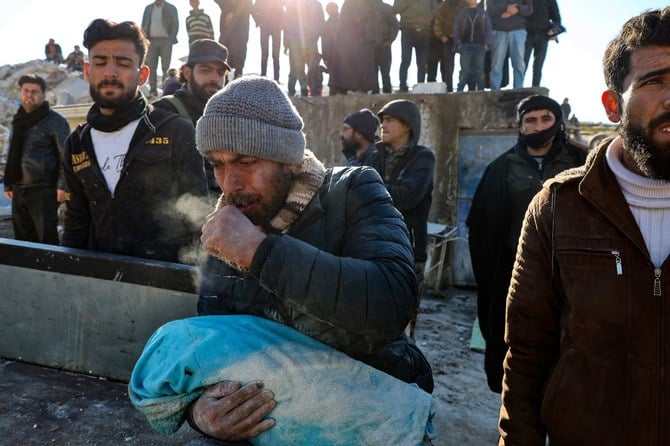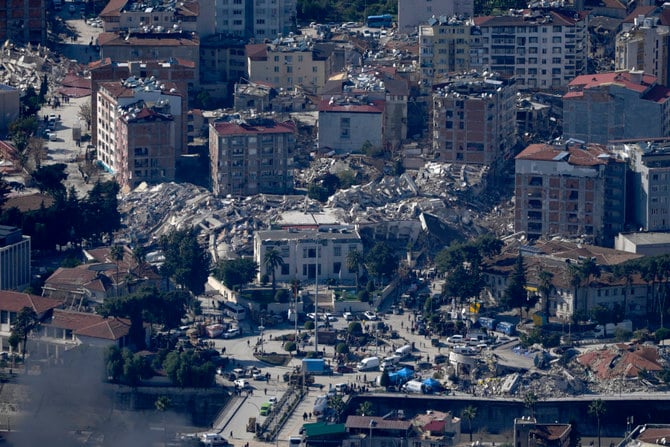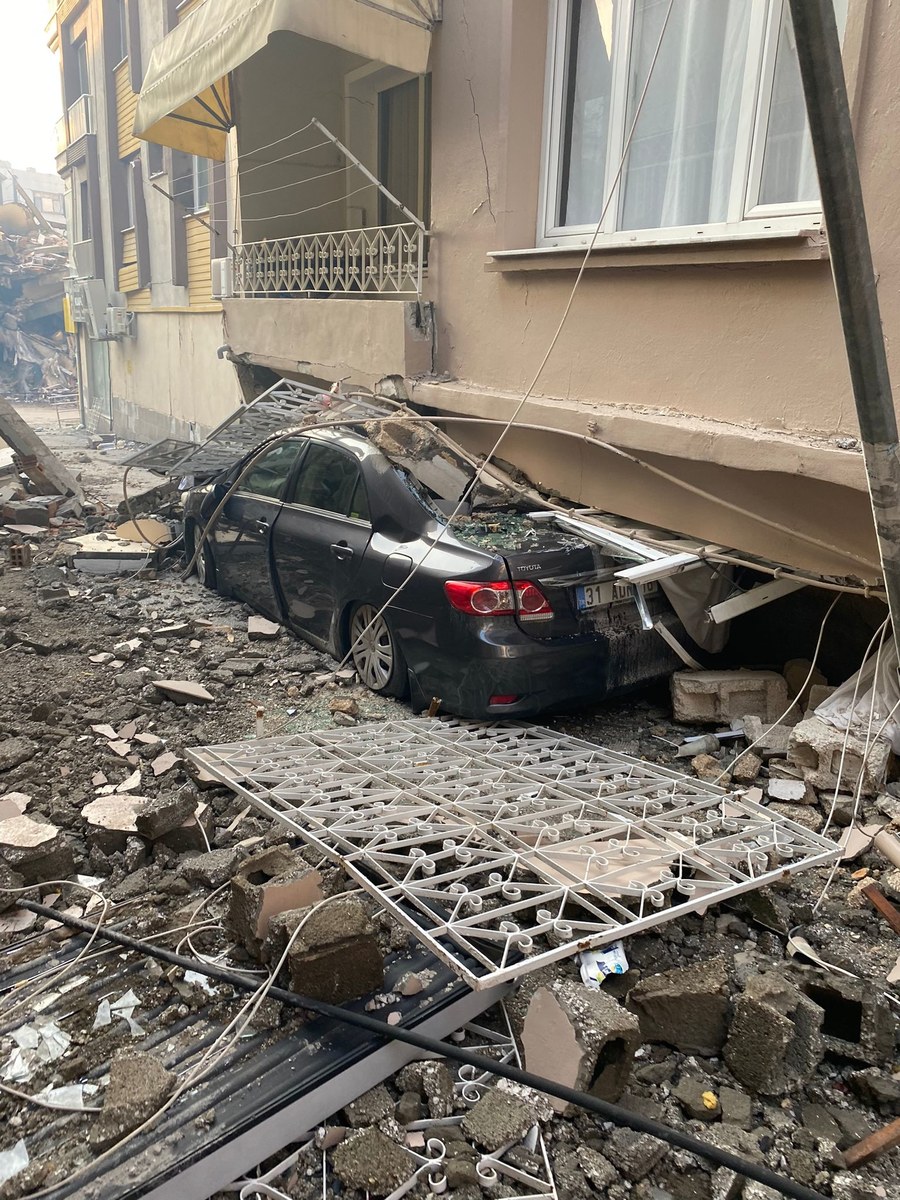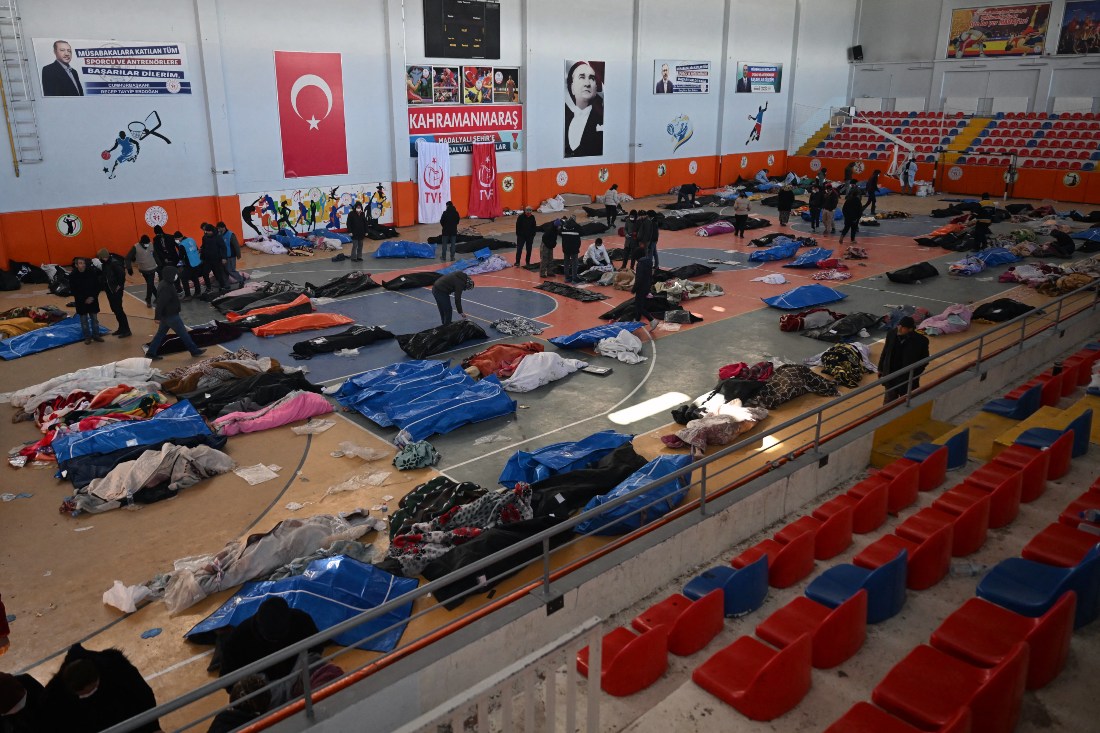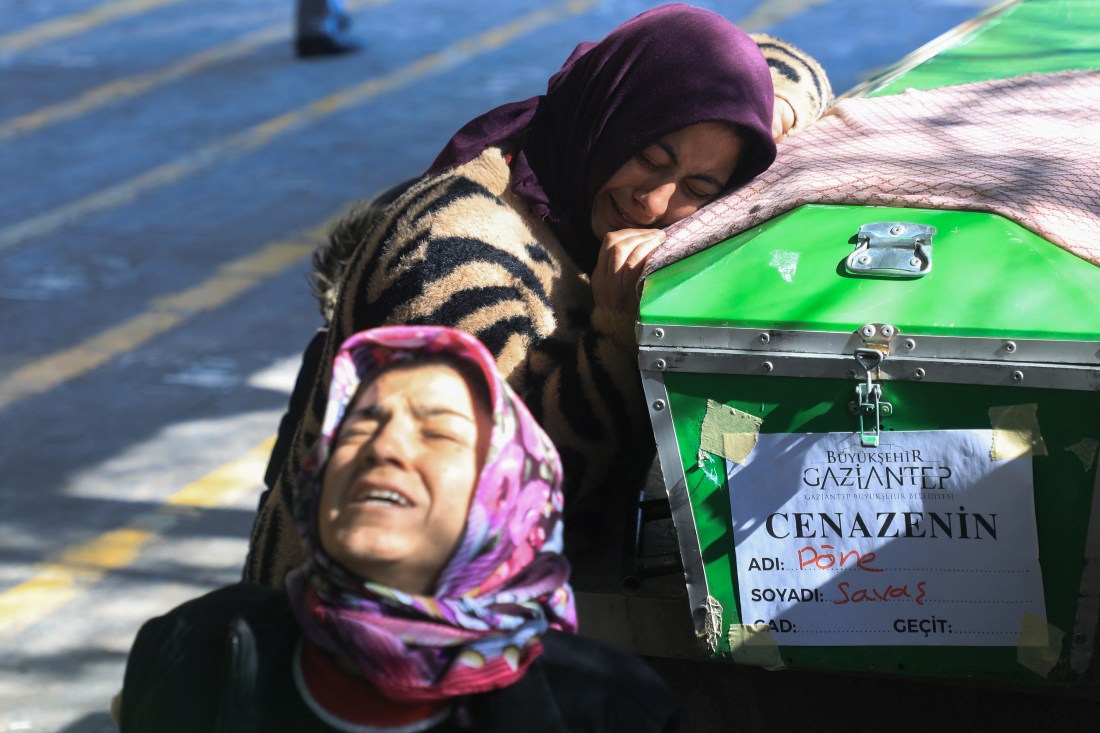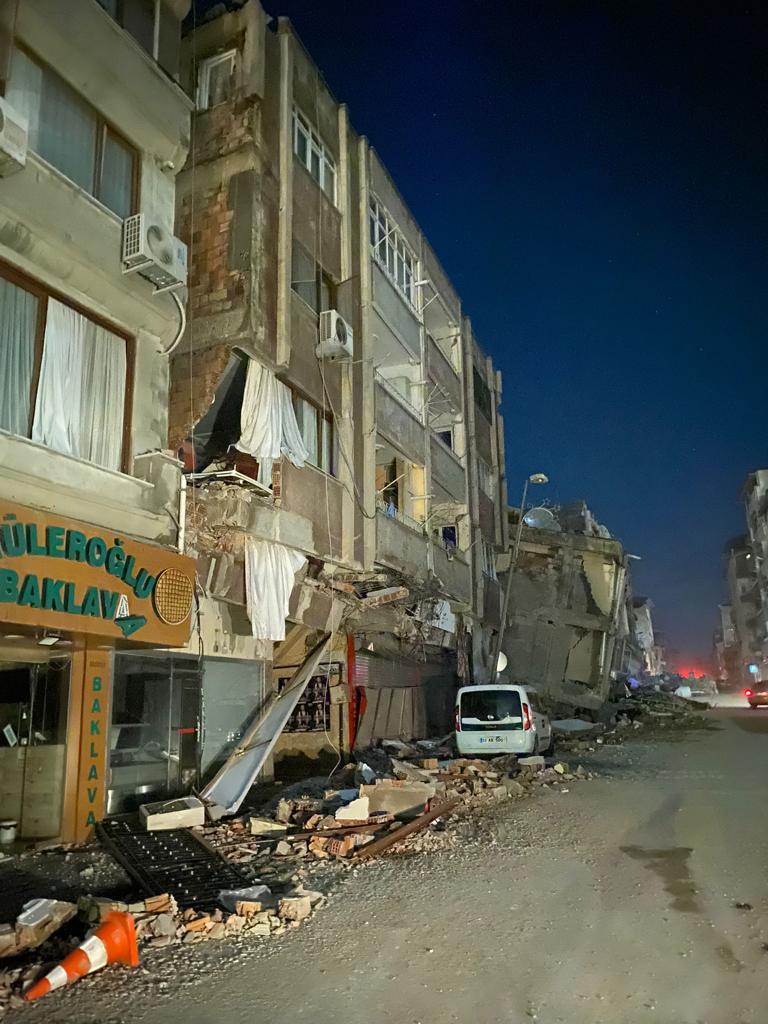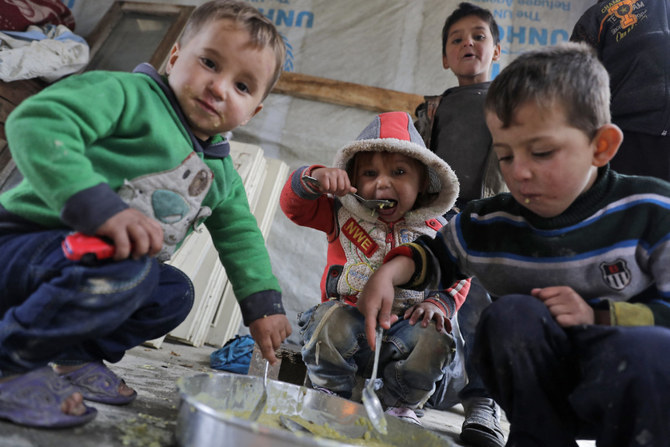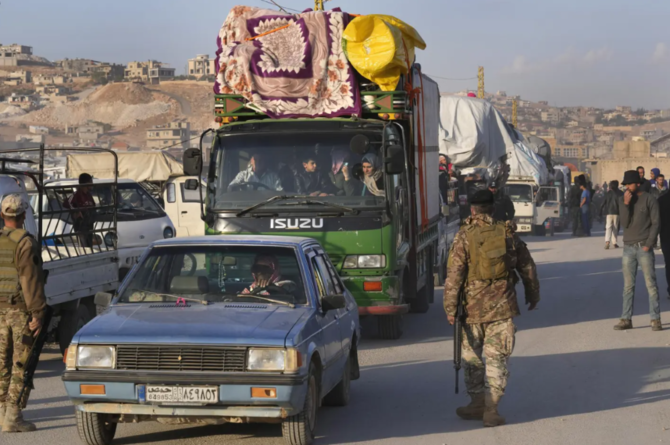ANKARA: The death toll from the Turkiye-Syria earthquakes passed 15,000 at dawn Thursday as hope faded of finding more survivors among the rubble of devastated towns and villages.
Across a swathe of southern Turkiye, people sought temporary shelter and food in freezing winter weather, and waited in anguish by piles of rubble where family and friends might still lie buried.
Rescuers were still finding some people alive. But many Turks have complained of a lack of equipment, expertise and support to rescue those trapped — sometimes even as they could hear cries for help.
Authorities have only reached 2-3 percent of collapsed buildings in some affected areas, sources said.
“Where is the state? Where have they been for two days? We are begging them. Let us do it, we can get them out,” Sabiha Alinak said near a snow-covered collapsed building in the city of Malatya where her young relatives were trapped.
In Antakya, dozens of bodies, some covered in blankets and sheets and others in body bags, were lined up on the ground outside a hospital. One survivor, Melek, 64, said she had seen no rescue teams. “We survived the earthquake, but we will die here from hunger or cold.”
There were similar scenes in northern Syria, which was also hard hit by Monday’s two huge quakes. Syria’s ambassador to the UN admitted the regime in Damascus had a “lack of capabilities and lack of equipment,” which he blamed on Western sanctions.
Turkish President Recep Tayyip Erdogan admitted that his government’s initial response to the disaster had been inadequate, but insisted it was improving.
“We will be better tomorrow and later. We still have some issues with fuel … but we will overcome those too,” Erdogan said on a visit to Kahramanmaras to view the damage and see the rescue and relief effort.

Entire streets in Kahramanmaras, closest city to the quake’s epicenter, were reduced to rubble, with plumes of smoke rising from fires. Hundreds of tents were set up as shelter in a sports stadium. About 50 bodies draped in blankets lay on the floor of a sports hall.
Death toll sure to rise
As search and rescue operations continued, the World Health Organization warned that the final death toll could exceed 20,000.
A similar earthquake in the region in 1999 killed at least 17,000 people.
Turkish officials say some 13.5 million people were affected in an area spanning roughly 450 km from Adana in the west to Diyarbakir in the east. In Syria, people were killed as far south as Hama, 250 km from the epicenter.
Some who died in Turkiye were refugees from Syria’s war. Their body bags arrived at the border in taxis, vans and piled atop flatbed trucks to be taken to final resting places in their homeland.
More than 298,000 people have been made homeless and 180 shelters for the displaced had been opened, Syrian state media reported, apparently referring to areas under government control, and not held by opposition factions.
In Syria, relief efforts are complicated by a conflict that has partitioned the nation and wrecked its infrastructure.
The delivery of UN humanitarian aid via Turkiye to millions of people in northwest Syria could resume on Thursday after the long-running operation was halted by the quake, UN officials said.
In the Syrian city of Aleppo, staff at the Al-Razi hospital attended to an injured man who said more than a dozen relatives including his mother and father were killed when the building they were in collapsed.
Press for aid
Syrian President Bashar Assad appears to be seeking political advantage from the quake, pressing for foreign aid to be delivered through his territory as he aims to chip away at his international isolation, analysts said.
A US-based NGO, Global Empowerment Mission, mobilized about $10 million of relief aid in the past 24 hours for earthquake victims.
On Wednesday, Erdogan visited affected Turkiye regions to inspect quake damage and speak to survivors.
“Initially, 10,000 Turkish liras ($500) will be allocated to each citizen affected by the earthquake,” he said.
In the wake of the disaster, search and rescue workers, as well as medics, have arrived in Turkiye and Syria from all corners of the globe.
Turkish municipalities have deployed hundreds of their own rescue personnel.



